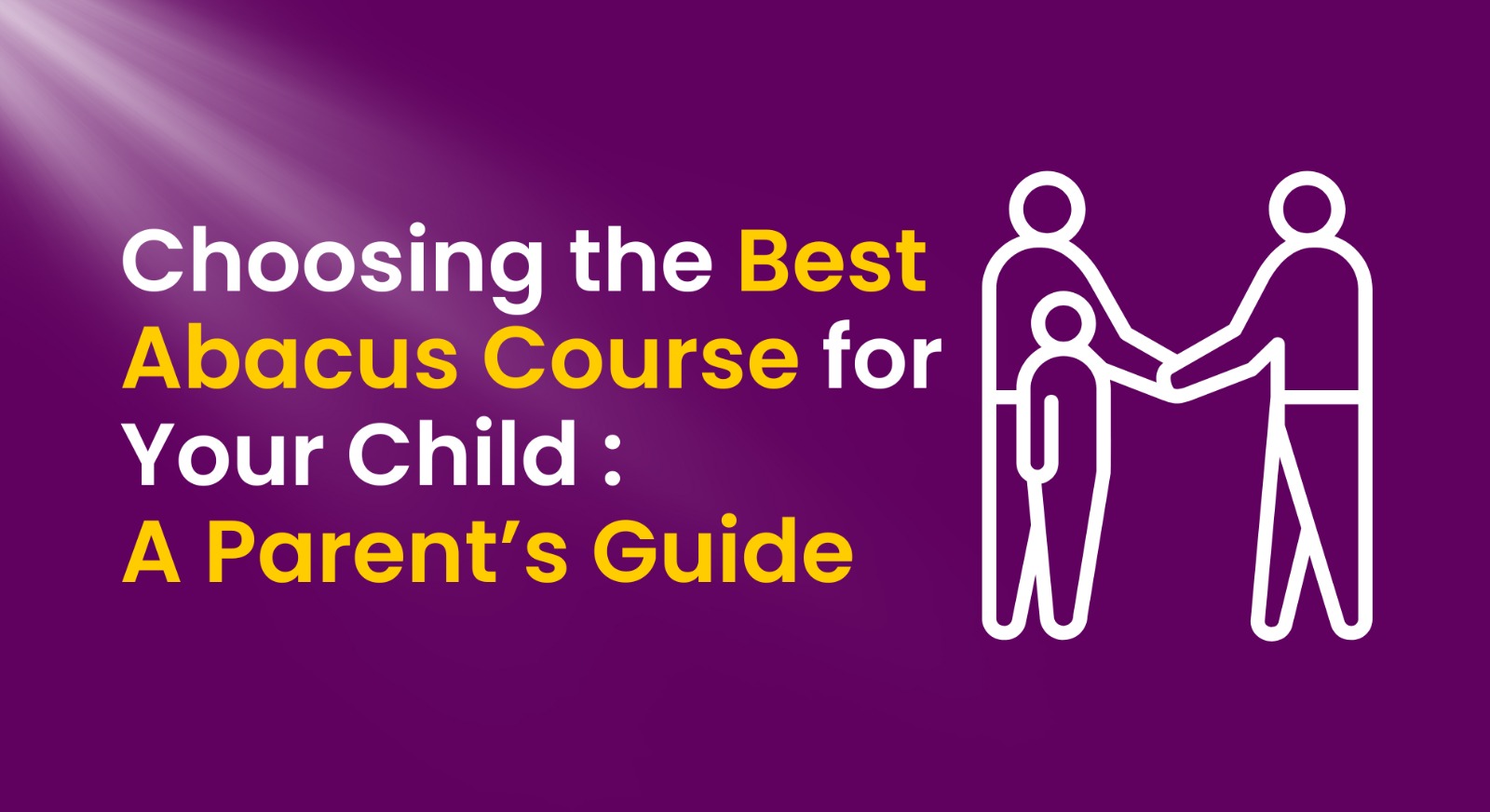
Selecting the Best Abacus Course for your child can be a challengingtask. With so many options available, it's crucial to find a program that aligns with your child’s needs and learning style. This guide aims to make things easier by giving parents important information so they can make a good decision.
Abacus training gives multiple academic benefits for children, such as enhanced concentration, improved memory, and better problem-solving skills.
This ancient tool goes above sheer counting; it engages both sides of the brain, promoting overall mental development. It makes math fun and engaging, helping to build a strong foundation in arithmetic. By learning to visualize numbers and perform math mentally, children gain confidence and proficiency in math, which can positively impact their performance in other subjects as well.
By learning to visualize numbers and do math in their heads, children gain confidence and skill in math, which can also help them perform better in other subjects.
When choosing an abacus course, consider whether an online or offline format best suits your child.
Online classes give kids the flexibility to learn comfortably at home. They use interactive software and virtual classrooms to make learning enjoyable.
On the other hand, offline classes provide face-to-face interaction and immediate feedback from educators, which can be beneficial for some learners.
Offline classes also offer a more structured environment and opportunities for social interaction with peers.
Think about the good and bad points of each way of learning to decide which one works best for how your child learns and your family's schedule.
Ensure the course is appropriate for your child’s age and skill level.
Abacus programs are designed for kids at various ages and learning levels, from beginners to advanced. Pick a course that matches how well your child can do now and pushes them a bit to help them learn more without getting too frustrated.
A well-structured program will gradually increase in complexity, helping your child build confidence and master new skills step by step.
Consider speaking with instructors or program coordinators to assess your child’s readiness and find the best starting point.
Look for a planned coursework that covers all essential aspects of abacus training. Effective teaching methods should include interactive and engaging activities that keep children interested and motivated.
A complete coursewill not only teach Abacus Techniques but also include exercises that enhance mental math skills, logical reasoning, and critical thinking. Additionally, The program should offer many practice opportunities and regular assessments to monitor progress effectively.
Using digital tools and games can make learning more fun and helpful.
It's important to have skilled educators in the program. Look for teachers who know abacus techniques well and understand how children learn.
Qualified teachers can adjust their teaching styles to fit different learning styles and give personalized help to each student. Accreditation from reputable educational organizations can also show that the program meets high standards.
Accredited programs are usually well-designed, with effective teaching and good results for students.
Consider the duration of the course and the time commitment required. Some programs are short-term, lasting a few weeks, while others span several months or even years.
Make sure the class times work for your family and your child’s other activities. Choose a course that fits well into your schedule without adding too much stress.
Consistent practice is key to mastering abacus skills, so ensure that your child can commit to the required practice sessions and classes.
When choosing a program for your child, think about both the cost and what it offers. Look for programs that give good teaching and fair prices.
Some programs might cost more at first, but they can help your child do better in school and think better, which makes them worth the money. Also, check what other help the program gives, like books, online stuff, or extra lessons.
Read reviews and testimonials from other parents to measuretheeffectiveness of the course.
Positive feedback can provide comfort that you’re making the right choice. Look for detailed reviews that discuss the program’s impact on children’s learning and development, as well as the quality of instruction and support provided.
Feedback from parents whose children have finished the program and shown big improvements can be very helpful.
Many abacus programs offer trial classes or demo sessions. Take advantage of these opportunities to see if the teaching style and course content are a good fit for your child.
Demo classes allow your child to experience the learning environment and interact with the educators, giving you a better understanding of what to expect from the program.
Use this opportunity to ask questions, observe the teaching methods, and assess how engaged and comfortable your child feels during the session.
Choosing the best abacus course for your child involves careful consideration of various factors, including the type of course, the curriculum, educators qualifications, and cost.
By doing your research and utilizing resources like reviews and trial classes, you can find a program that will set your child up for success in math and beyond.
Remember, the goal is to provide a learning experience that is not only educational but also enjoyable and motivating for your child.
Choosing the right abacus course for your child can open doors to numerous educational benefits and lifelong skills. By following this guide, you can make an informed decision that supports your child’s cognitive development and academic success.
Children can start as early as 4 years old, but the ideal age may vary depending on the program.
Both online and offline classes can be effective if they are well-structured and taught by qualified instructors.
Course duration varies; some programs can be completed in a few months, while others may take longer.
Look for educators with certification, experience, and a teaching style that engages children.
Yes, the cognitive skills developed through abacus training can enhance overall academic performance.